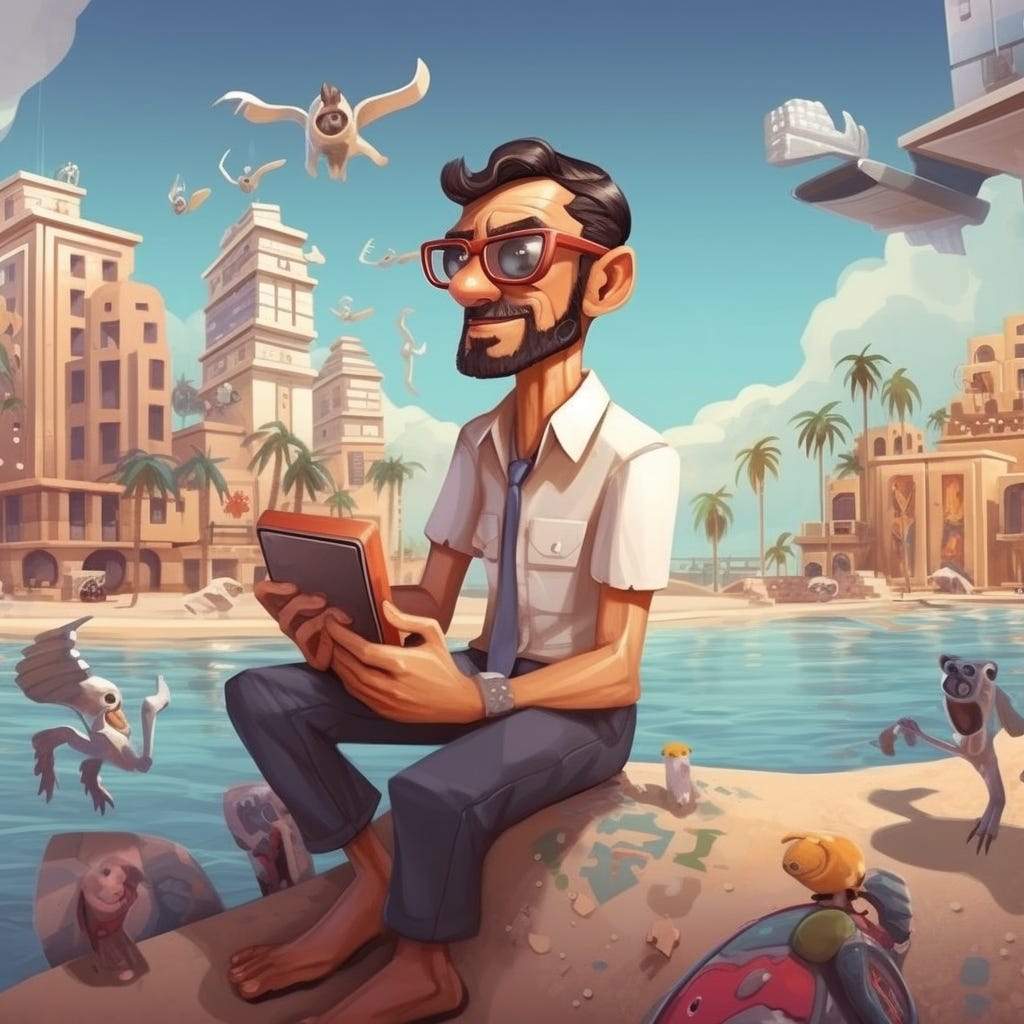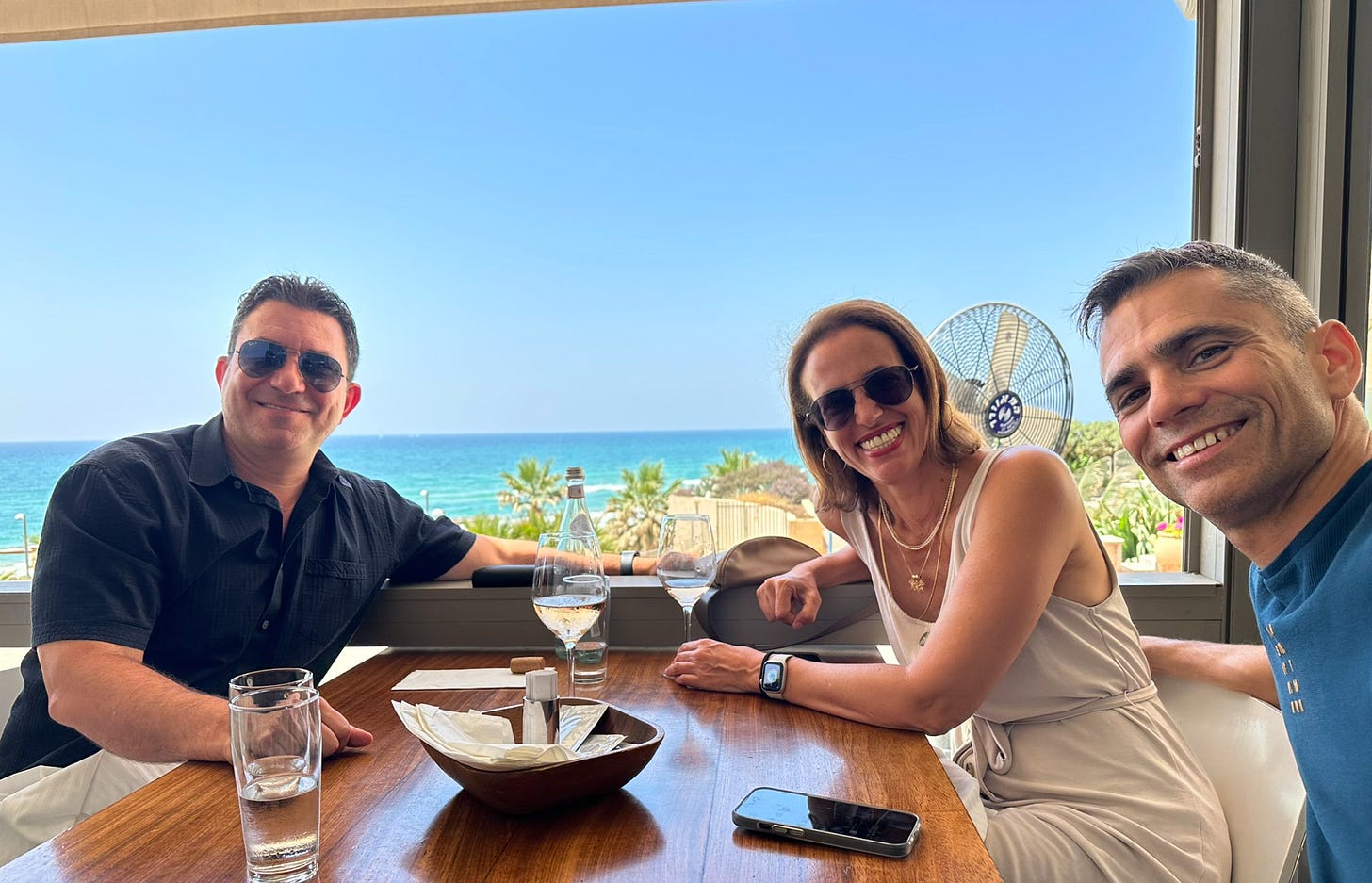Who's creating the next Silicon Valley...Saudi Arabia, Israel, Korea or China?
Escape The Hype Cycle By Looking At The Outside World
Sam Altman knows where to look when it comes to reshaping the boundaries of emerging technology.
Unfortunately for his fellow Americans, he’s looking outside the U.S.
Last week, the OpenAI chief met with lawmakers, national leaders, and startups in Europe, Israel, Jordan, Qatar, United Arab Emirates, India, and South Korea to make deeper contacts in these countries as they look to both regulate and build the future of artificial intelligence and emerging tech.
South Korea, and not the U.S., has been urged by Altman to play a leading role in establishing international AI standards and focusing on the production of essential chips for AI applications.
At the moment I write this, I’m taking all this in from Israel, where I’m meeting with clients, emerging tech entrepreneurs and decades-long friends. It’s a perfect location to pause and think about the state of emerging tech and where things are going. A hub of tech innovation, Israeli cities like Tel Aviv are all about setting the pace of innovation instead of keeping up.
For those of us born in what Time Magazine founder Henry Luce called “the American Century,” the fast moves taking place in other countries are humbling. And from a business growth perspective, it’s also worrying when you think about securing a better future here for families, ourselves, our neighbors, our businesses.
I’m often asked to host events on emerging tech when I’m traveling. So I’ve been fortunate to have a front row seat with people around the world who are thinking and creating technological advances. It’s inspiring.
One company that has impressed me over the past year is Saudi Arabia-based TONOMUS. They're one of the most fascinating and ambitious and truly visionary tech companies you might not have heard of.
I hosted several fantastic dinners this year - at CES, Mobile World Congress, and SXSW - with Beverly Rider, the chief commercial officer of TONOMUS and the CEO of Portfolio T, a TONOMUS Company.
The company’s cognitive tools and solutions aim to do nothing less than transform accepted ideas of urban life. The concept of “smart cities” has been around for decades; TONOMUS is looking to the concept of “cognitive cities.”
This is not a matter of semantics. It’s also not a matter of some distant, imaginary future.
TONOMUS is the force behind NEOM, the cognitive city it is helping to construct in the desert of Saudi Arabia. It’s doing this now.
As for the distinction between smart and cognitive cities, TONOMUS CEO Joseph Bradley has described it this way: “A smart city focuses on real-time information. Whereas the cognitive city already knows that real-time is too late. It is about being proactive and predictive.”
Put another way, TONOMUS is focused on “moving the needle from smart technology (which treats problems) to cognitive (which prevents them).”
It’s the kind of big, bold, game-changing idea that the US has often led on. It’s something we can get back to doing — if we’re not too hung up on our self-importance and take some inspiration from what’s going on outside our usual environs.
This fall, I’ll be back in the Middle East and then on to Asia this fall to continue meeting with individuals and companies shaping mixed reality (“spatial computing”), artificial intelligence, cleantech, and the future of smart cities.
How The Rest of the World Is Moving Forward
The implications of this global innovation race we’re seeing in so many different parts of the globe are significant. The rapid development and popularity of generative AI, exemplified by OpenAI's ChatGPT, has prompted lawmakers worldwide to draft regulations addressing safety concerns associated with the technology.
The European Union is making progress with its draft AI Act, set to become law this year, while the United States leans toward adapting existing laws rather than creating new legislation. This dichotomy underscores the need for American leaders to stay attuned to global regulatory frameworks and actively engage in shaping AI policies that balance innovation and safety.
But it’s not just regulations from outside the U.S. that will determine the parameters that businesses will operate in. It’s really about the sense of determination and focus among American government and business leaders to build “the next thing.”
After South Korea, it’s a good time to look at Japan. The country is once again demonstrating its commitment to pushing the envelope of entertainment with the opening of the largest esports park in the country at Tokyo Tower. Red Tokyo Tower, located in the iconic landmark's Foot Town, is about giving visitors an immersive blend of virtual and physical reality experiences that cater to a wide range of interests.
We were the country that built Disneyland. Now we’re too focused on maintaining the established and the status quo. And that’s a recipe for falling behind.
As I noted above, China and Saudi Arabia are actively investing in the Smart Cities of the future while others may shake their heads at the concept. The rest of the world is going to be playing an expensive catch-up.
Pursuing the Smart City model is certainly a risky bet at the moment. Still, the worst time to explore a new business is when a model is already proven. You can compensate for being “too early” with an idea. But if you’re too late? Well, the rewards and costs for playing catch up tend not to balance out all that well.
There are some political leaders, like Miami Mayor (and recent presidential hopeful) Francis X. Suarez, who is taking bold stances on tech.
City leaders around the world are spurring innovation.
Let’s turn to Japan again.
I kicked off 2023 at CES, where I got to experience the initial result of the Sony and Honda alliance. It was a year after the electronics maker and the auto company announced their joint venture to create an electric vehicle.
Executives from the two brands took the stage at CES to unveil the project’s first prototype, Afeela.
With so many automakers well into the electric future, why did Honda need Sony to build a new EV model? Because the ride is about more than just the drive.
Consider Afeela’s features: this is about more than just a new EV. It’s about elevating and responding to consumers’ expectations about the connection between devices and their media.
For brands like Honda and Sony to realize the full potential of emerging tech and the idea of the connected home, connected office, the connected car and so on, they can’t go it alone if they want to produce genuine breakthroughs.
That alliance goes beyond the respective businesses of electronics and cars. It speaks to the broader needs for smarter transportation. Those needs and ideas encompass Smart Cities, the connected home, cleantech.
Big ideas are multifaceted. They are more than one business vertical. They are more than any one city, any one state, any one country. The big ideas are more than any one industry can come up with.
As I get ready to leave Israel and head to Cannes, I’m looking forward to seeing more partners, colleagues, clients, friends from a range of areas and disciplines and perspectives. It’s by going out into the world that the larger thoughts and larger alliances happen. Only by cutting across geographies, governments, and single business interests can we get beyond the constraints and the hype that’s hindering emerging tech advances in the US.









